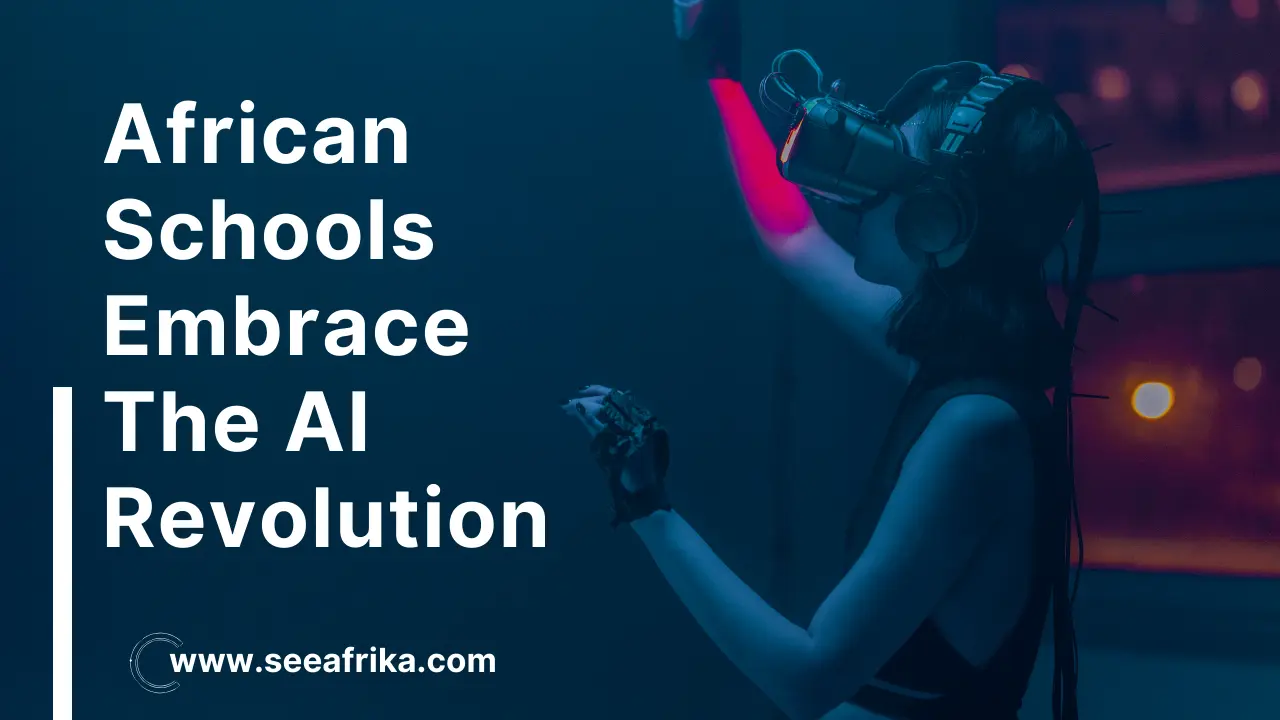African schools embrace AI as a transformative force in education. Recent developments show that many institutions are gearing up to integrate artificial intelligence into their systems. This shift promises to enhance learning experiences and improve educational outcomes across the continent.

Growing Interest in AI in Education
The excitement around AI is palpable. At the recent Mobile World Congress, discussions highlighted AI’s potential to revolutionize education in Africa. Experts believe that AI can streamline administrative tasks, allowing teachers to focus more on mentoring students.
AI’s potential to improve education is acknowledged in the African Union’s recent Continental Artificial Intelligence Strategy, along with the risks and issues that come with it. Though it also calls for greater sharing of evidence-based effective practices and a greater understanding of AI use cases, policies, and competency frameworks in education, the strategy names education as one of the key sectors for AI expansion.
Also read: DeepSeek’s Rise Sparks Debate on AI Adoption in Africa
Innovative Projects Leading the Way
Several initiatives are paving the way for AI adoption in African schools. For example, Rwanda has established a comprehensive AI policy aimed at leveraging technology while safeguarding data privacy, particularly for children. This policy serves as a roadmap for other nations looking to harness AI’s benefits.
In addition, projects like those supported by the International Development Research Centre (IDRC) are making strides in inclusive education. Tools developed by Maseno University, for example, help bridge communication gaps for Deaf students by translating between English and Kenyan sign language. Such innovations exemplify how African schools embrace AI to foster inclusivity and accessibility.
Also read: Starlink Expands in Africa: A New Ground Station in Nairobi
Collaborative Efforts for AI Integration
Collaboration is key to successful AI integration. The GPE KIX Africa Hub and UNESCO recently organized a seminar in Dakar, Senegal, focusing on digital and AI competencies for educators. This event brought together representatives from 25 African countries to share best practices and develop tailored strategies for implementing AI in education.
The Continental Artificial Intelligence Strategy also emphasizes the importance of building national competencies in AI among teachers and students. By investing in training initiatives, countries can prepare their educational systems for the future.
Also read: USTDA and AfDB partner to advance quality infrastructure in Africa.
Challenges Ahead
Despite these advancements, challenges remain. Limited infrastructure and data privacy concerns pose significant hurdles for many African schools. However, with growing investment in technology and a commitment to responsible AI use, these obstacles can be overcome.
Also read: Moniepoint secures a strategic investment from Visa.
The Future of Education with AI
As African schools embrace AI, the potential for job creation and skill development is immense. With projections indicating that Africa’s workforce will reach a billion by 2030, equipping young people with the necessary skills through AI-enhanced education is crucial.
According to the Mastercard Foundation’s Young Africa Works plan, Africa’s workforce will surpass one billion by 2030, with 375 million young people entering the labour force. These will necessitate a change in educational approaches, and AI initiatives may give students the new skill sets that employers are looking for.
In conclusion, African schools are not just adopting technology; they are embracing a future where AI plays a central role in shaping education. This commitment to innovation will undoubtedly lead to improved learning outcomes and better prepare students for the challenges ahead.
Also read: Top Fintech Companies in Africa.





This is a timely and insightful perspective on the future of education in Africa. AI has the potential to revolutionize learning, making education more accessible, personalized, and aligned with the evolving job market. As African schools integrate AI, it will be crucial to ensure inclusivity and adaptability, bridging the gap between traditional education and future workforce demands. The commitment to innovation in education will not only enhance learning outcomes but also position Africa’s youth as global competitors in the digital economy. Exciting times ahead!